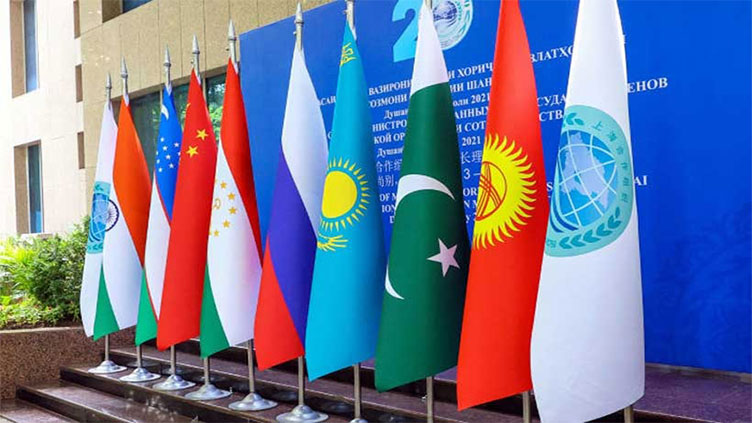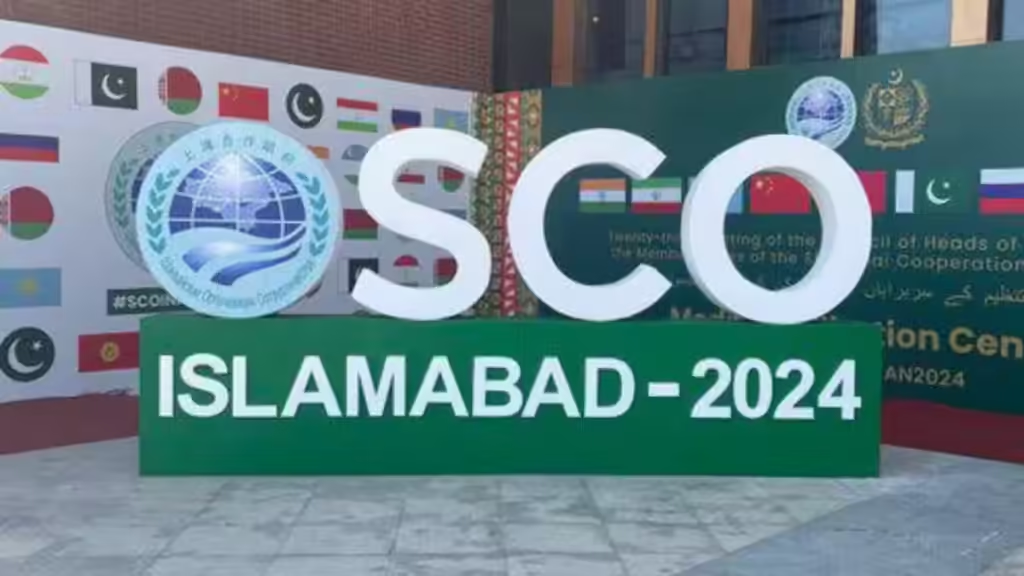Islamabad plans to host the Shanghai Cooperation Organisation (SCO) Summit on October 15-16, 2024. This event is significant in that it unites leaders from a number of critical countries in the region. India’s External Affairs Minister, S. Jaishankar, as well as Prime Ministers from China, Russia, Kazakhstan, Kyrgyzstan, Belarus, Tajikistan, Uzbekistan, and Iran’s First Vice-President, will be among the distinguished attendees. This summit is the first high-level visit by an Indian official to Pakistan in nearly nine years, underscoring a critical juncture in regional diplomacy.

The Significance of the SCO
The SCO is not merely a collection of nations. Collectively, its member states account for roughly 32% of the world’s GDP and approximately 40% of the global population. This
renders the SCO a significant platform for influencing global economic and security policies. Although economic collaboration is among the objectives of the Shanghai Cooperation Organization (SCO), its overarching objective is to bolster regional stability, resolve security concerns, and foster cultural connections among its member states.
The Shanghai Five, which were established in 1996 by China, Russia, Kyrgyzstan, Kazakhstan, and Tajikistan, are the origins of the organization. The SCO was formed in 2001 with the inclusion of Uzbekistan and subsequently expanded to include India and Pakistan in 2017. Iran joined in 2023. The SCO’s increasing significance as a forum for regional cooperation is further underscored by the anticipated incorporation of Belarus.
Key Matters on the Agenda
- The summit will concentrate on a number of critical issues, such as:
Regional Security: Exploring strategies to enhance the safety and stability of member states. - Counter-Terrorism: Strategies to combat terrorism will be a significant concern.
- Economic Collaboration: Increasing the trade and investment opportunities among member nations.
Environmental Concerns: The promotion of sustainable practices and the mitigation - of climate change.
These discussions are essential for member states to collaborate on shared challenges, including environmental sustainability, trade barriers, and terrorism.
Pakistan’s Function as a Host
Pakistan has a distinctive opportunity to exhibit its diplomatic capabilities as the host nation. The summit will provide Pakistan with an opportunity to establish itself as a regional connector under the leadership of Prime Minister Shehbaz Sharif. This entails the promotion of dialogue regarding youth engagement, commercial connectivity, and economic cooperation.
The presence of high-ranking officials from a variety of countries is a testament to Pakistan’s efforts to foster regional cooperation. Pakistan also has the opportunity to address its relationships with its neighbors, particularly India, during the summit. Jaishankar’s attendance suggests that India is prepared to participate in multilateral discussions, despite its ongoing apprehensions about cross-border terrorism.
Fostering Collaboration and Confidence
In order for the SCO to accomplish its objectives, member states must prioritize measures that foster confidence. It is imperative to mitigate tensions and conflicts among nations in order to cultivate an environment of stability. The collective issues that the SCO seeks to address should not be obscured by political differences.
To guarantee effective collaboration, it is essential that all member states, irrespective of their size, have an equal input in the decision-making process. This method will facilitate the meaningful participation of lesser nations, including those in Central Asia and Pakistan, in discussions.
Pakistan’s Strategic Recommendations
In order to completely capitalize on the strategic benefits of hosting the SCO Summit and address potential diplomatic obstacles, Pakistan should implement a number of critical policy recommendations. At first, it is crucial to implement measures that foster confidence. Pakistan should implement strategies that are designed to mitigate tensions and cultivate a more stable regional environment. Pakistan can assist in the mitigation of conflicts that may impede progress by encouraging dialogue and cooperation. Subsequently, it is imperative to prevent the forum from becoming politicized. More constructive outcomes can be achieved by encouraging member states to focus on collective issues rather than allowing bilateral disputes to dominate discussions. This method will contribute to the SCO’s continued emphasis on its overarching objectives, thereby improving its efficacy as a regional collaboration platform. Additionally, Pakistan should endorse UN resolutions that pertain to regional stability and counterterrorism. Not only does advocating for the implementation of these resolutions bolster Pakistan’s dedication to international norms, but it also fortifies collective security among member states. The SCO’s credibility may be improved by this conformity to global standards. Furthermore, it is imperative to encourage equitable participation within the organization. Pakistan can guarantee that lesser states have a voice in discussions by advocating for equal representation in decision-making processes. This inclusivity will cultivate a sense of ownership and cooperation among all member nations, thereby improving the SCO’s overall effectiveness. Finally, Pakistan should facilitate climate cooperation within the SCO framework. Pakistan can underscore the significance of environmental sustainability by advocating for initiatives that address climate change, including the establishment of Climate Funds and the exchange of best practices. Pakistan is not only positioned as a proactive leader in regional cooperation, but it also addresses a pressing global issue.
Conclusion
These strategic recommendations enable Pakistan to optimize the advantages of hosting the 2024 SCO Summit while simultaneously effectively mitigating potential obstacles. Pakistan can enhance its status as a significant participant in regional diplomacy and cooperation by promoting inclusivity, prioritizing collective action on critical issues, and fostering stability.

